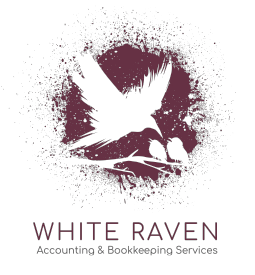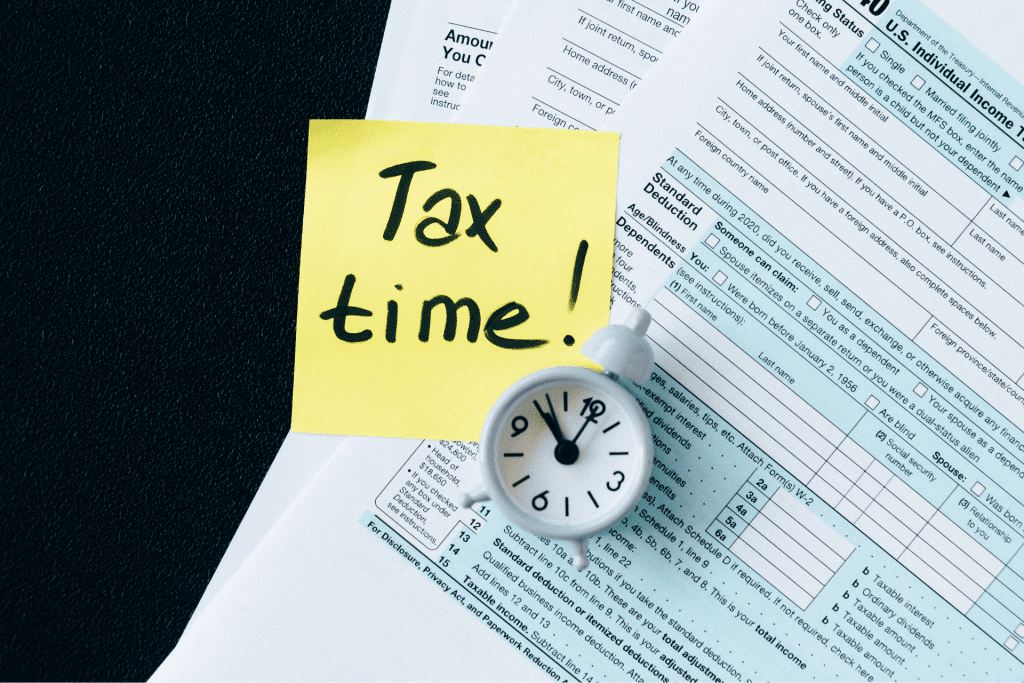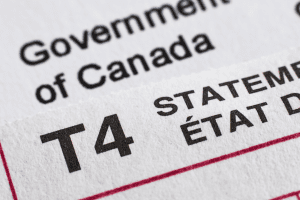Navigating tax season in Canada can be a stressful time for small business owners. With multiple deadlines, complex rules, and a variety of deductions to consider, it’s easy to feel overwhelmed. However, staying organized and proactive can make a significant difference in reducing stress and ensuring your business complies with the Canada Revenue Agency (CRA) requirements.
For small businesses, tax obligations go beyond just filing on time. Understanding these obligations helps you avoid penalties, which can be costly and time-consuming to resolve. Moreover, when you’re well-prepared, you can identify and claim deductions that reduce your tax liability, ultimately leaving more money in your pocket to reinvest in your business.
Being proactive about taxes isn’t just about compliance—it’s a strategic opportunity to maximize your financial resources. By staying on top of deadlines, maintaining accurate records, and leveraging available deductions, you can position your business for growth and long-term success.
Key Tax Deadlines for Small Businesses in Canada
One of the most critical aspects of tax preparation is understanding and adhering to filing deadlines. Missing deadlines can lead to unnecessary penalties and interest charges, so it’s crucial to know when specific filings are due.
Corporate Tax Deadlines
For incorporated businesses, the corporate tax return (T2) must be filed no later than six months after the end of the company’s fiscal year. However, if you owe taxes, the payment is due within two months after the fiscal year-end. This discrepancy between the filing and payment deadlines highlights the importance of planning ahead to avoid last-minute stress. Read our blog on corporate tax deadlines to learn more.
Deadlines for Sole Proprietorships and Partnerships
If you operate as a sole proprietor or are part of a partnership, the tax deadline for filing your personal tax return, including business income, is June 15. However, any taxes owed must be paid by April 30 to avoid interest charges. Sole proprietors often face unique challenges as they combine personal and business finances, making it crucial to stay organized throughout the year.
The Importance of Filing GST/HST on Time
Small businesses that collect GST/HST are required to file returns and remit payments regularly. Depending on your business size and revenue, you may need to file monthly, quarterly, or annually. Late filings can result in penalties and interest, which can add up quickly. Understanding how GST works can help ensure you’re collecting and remitting taxes correctly, avoiding costly errors and penalties.
Tips for Creating a Tax Deadline Calendar
Staying on top of deadlines is easier when you have a tax calendar in place. Consider the following tips:
- Mark Important Dates Early: Identify all applicable deadlines at the start of the year.
- Set Reminders: Use digital tools like Google Calendar or accounting software to set reminders a few weeks before each due date.
- Work Backwards: Allocate time for gathering documents and preparing filings to avoid a last-minute rush.
By being proactive and organized, you can eliminate the stress of missed deadlines and focus on growing your business.
Essential Documents You Need to Prepare
The foundation of a smooth tax season lies in having all your essential documents ready. Accurate and complete documentation ensures you can file your taxes efficiently and claim all eligible deductions. Here’s a list of must-have documents for Canadian small businesses:
1. Income Records
Maintain a record of all income generated by your business, including sales invoices, bank statements, and any additional revenue sources. This helps you accurately report your earnings and avoid discrepancies during a CRA audit.
2. Expense Receipts
Deductions can significantly lower your taxable income, but you’ll need proof of your expenses. Keep receipts for business-related purchases such as office supplies, equipment, advertising costs, and professional services. Digital tools or apps that organize and store receipts can make this process seamless.
3. Payroll Information
If your business has employees, ensure you have accurate payroll records, including T4 slips, records of employment (ROEs), and summaries of payroll deductions. These documents are essential for compliance with CRA regulations and filing the appropriate returns.
4. GST/HST Remittance Records
For businesses registered for GST/HST, maintain detailed records of amounts collected and paid. These records are necessary for filing GST/HST returns and avoiding errors that could trigger penalties or audits.
How Good Bookkeeping Simplifies Tax Preparation
Good bookkeeping practices are the backbone of efficient tax preparation. Organized financial records not only make it easier to gather the necessary documents but also ensure accuracy when filing your taxes. Proper bookkeeping helps you track income and expenses in real time, reducing the risk of missed deductions or over-reported earnings. It’s clear that good bookkeeping saves you money by helping you identify eligible deductions and avoid costly mistakes during tax season.
By maintaining clear and consistent records, you’ll also save valuable time during tax season. Rather than scrambling to find documents or clarify transactions, you can focus on reviewing and filing with confidence.
Staying organized and understanding your tax obligations doesn’t just help you avoid penalties—it positions your business for long-term financial success. By meeting deadlines, preparing the right documents, and prioritizing good bookkeeping, you can tackle tax season with confidence and focus on what truly matters: growing your business.
Tax Deductions and Credits Available to Small Businesses
One of the most significant ways small businesses can lower their tax liability is by taking advantage of available deductions and credits. Understanding what you’re eligible for not only helps reduce your taxable income but also ensures you don’t leave money on the table.
Common Tax Deductions for Small Businesses
- Home Office Expenses
If you run your business from home, you may be able to deduct a portion of expenses such as rent, utilities, and internet costs. To claim these deductions, the CRA requires that the space is used exclusively for business purposes or represents your primary workspace. - Vehicle-Related Expenses
If you use a vehicle for business purposes, you can claim expenses like fuel, maintenance, insurance, and lease payments. Keeping a logbook to record business-related mileage versus personal use is essential for accurately calculating deductions. - Marketing Costs
Advertising and marketing expenses are fully deductible if they are directly related to your business. This includes costs for online ads, social media campaigns, website development, and even promotional materials like brochures and business cards. - Professional Services
Fees paid to accountants, lawyers, and consultants are deductible if they are related to your business. Investing in professional advice can often save you money in the long run, especially when it comes to tax planning and compliance.
Small Business Tax Credits
In addition to deductions, small businesses in Canada can take advantage of various tax credits. For example, the Small Business Deduction reduces the corporate tax rate on the first $500,000 of active business income for Canadian-controlled private corporations. The Importance of Detailed Records
Claiming deductions and credits requires proper documentation. The CRA may request receipts, invoices, or other proof to substantiate your claims, so it’s essential to keep detailed records. Using accounting software or working with a professional bookkeeper can streamline this process and ensure compliance.
Common Mistakes to Avoid During Tax Season
Even with the best intentions, small businesses often make critical errors during tax season that can lead to penalties or missed opportunities. Avoiding these common mistakes can save you time, money, and stress.
1. Filing Late or Missing Deadlines
Failing to meet tax deadlines can result in costly penalties and interest charges. To avoid this, plan your filing timeline well in advance and consider setting reminders for key dates.
2. Misclassifying Expenses
Incorrectly categorizing expenses can trigger audits or cause you to miss out on eligible deductions. For example, personal expenses claimed as business-related can raise red flags with the CRA. Ensure that all expenses are properly documented and categorized.
3. Overlooking Eligible Deductions
Many small businesses fail to claim all the deductions they are entitled to, such as depreciation on business assets or meal and entertainment expenses related to client meetings. Conduct a thorough review of your expenses to identify deductible items.
How to Avoid These Mistakes
Proper planning and organization are key to avoiding these errors. Invest in professional bookkeeping services or use accounting software to track income and expenses accurately. .
Tools and Resources for Tax Season Success
Small businesses have access to a variety of tools and resources that can simplify tax season and ensure compliance. Here are some of the most effective options:
Recommended Accounting and Tax Software
- QuickBooks Online: Ideal for small businesses, offering features like expense tracking, invoicing, and tax preparation.
- Wave: A free option for small businesses with basic accounting needs.
- Xero: A robust platform for managing finances and taxes, suitable for growing businesses.
Working with Professional Accountants or Bookkeepers
While software can simplify some tasks, professional guidance is invaluable for more complex tax issues. Accountants and bookkeepers can help with:
- Identifying eligible deductions and credits.
- Ensuring compliance with CRA regulations.
- Advising on long-term tax strategies to reduce liability.
The Role of Financial Planning
Good financial planning can prepare your business for next year’s taxes and ensure smooth operations throughout the year. Setting clear financial goals and managing resources effectively are key steps to staying ahead. Improving your financial literacy can help you develop strategies to optimize cash flow, reduce liabilities, and make informed decisions for your business’s future.
What to Do If You Miss a Deadline or Face an Audit
Even with the best preparation, unforeseen circumstances can lead to missed deadlines or CRA audits. Knowing how to respond can minimize potential penalties and stress.
Steps to Take If You Miss a Tax Deadline
- File as Soon as Possible: The sooner you file, the less interest and penalties you’ll incur.
- Communicate with the CRA: If you’re unable to pay your taxes immediately, contact the CRA to discuss payment arrangements.
- Seek Professional Help: An accountant can guide you through late filings and help you minimize penalties.
How to Handle a CRA Audit
CRA audits can be intimidating, but being prepared can make the process smoother:
- Stay Calm and Cooperative: Respond to requests for information promptly.
- Provide Accurate Documentation: Ensure you have all records to substantiate your claims.
- Hire a Professional: A tax professional can represent your business during the audit and ensure compliance with CRA requirements.
Benefits of Professional Assistance
Whether you’re dealing with late filings or an audit, seeking professional help ensures that issues are resolved efficiently. Experts can negotiate with the CRA on your behalf and help prevent similar problems in the future.
Conclusion: Do You Need Assistance Navigating Tax Season?
Navigating tax season in Canada doesn’t have to be overwhelming. By understanding your obligations, taking advantage of deductions and credits, and using the right tools, you can reduce stress and ensure compliance.
Staying organized, avoiding common mistakes, and seeking professional assistance when needed are key strategies for small business success during tax season. Start preparing now to maximize your financial resources and focus on what matters most—growing your business.
Ready to take control of your taxes? Explore our Canada Tax Guide to get started on your tax season preparations today! If you need personalized assistance, contact White Raven Accounting for expert tax support tailored to your business needs.





